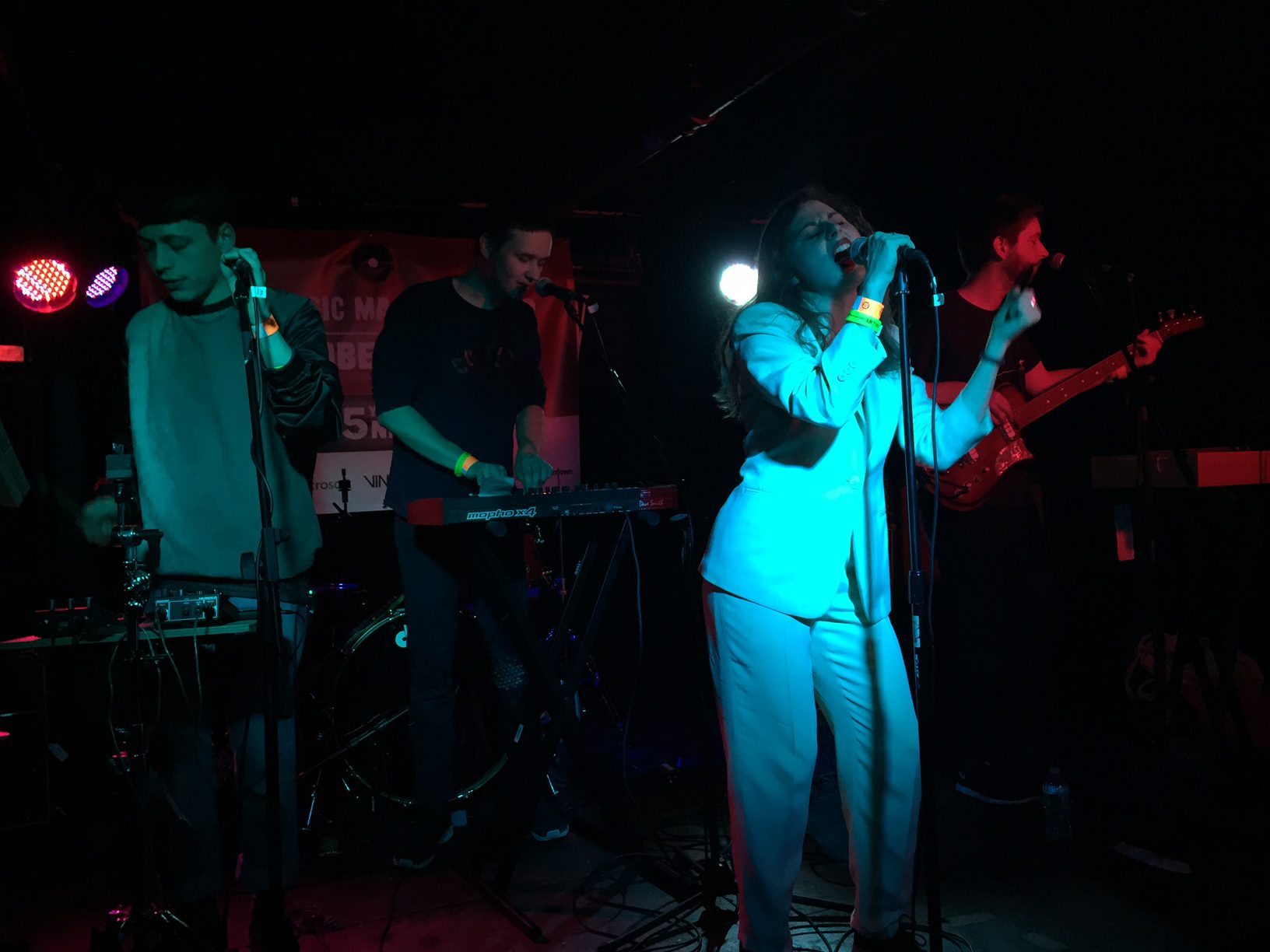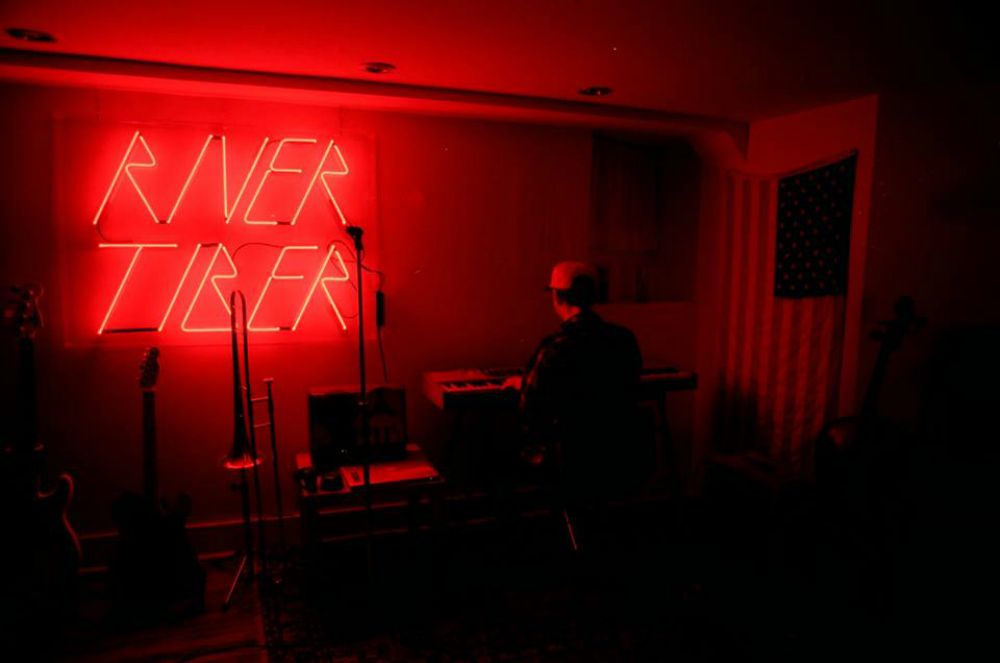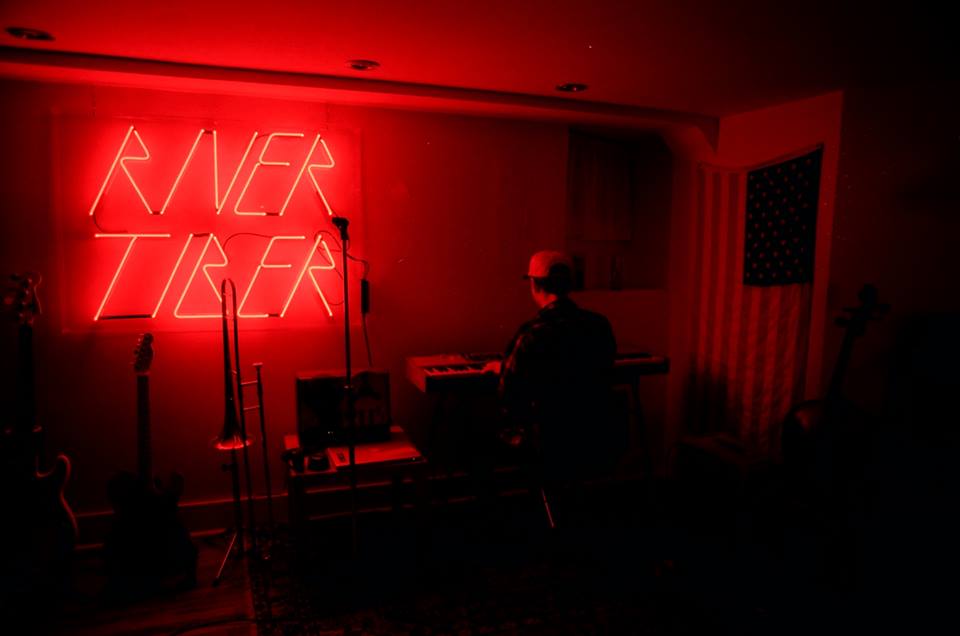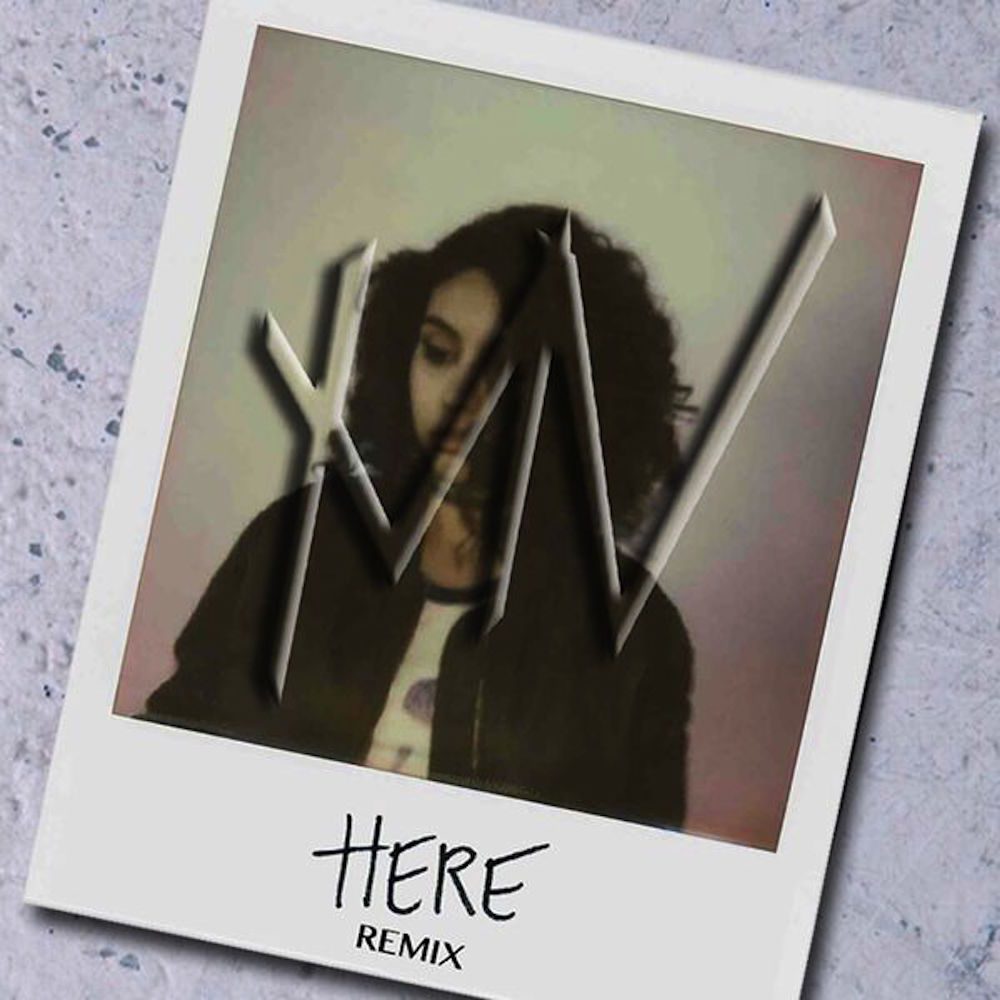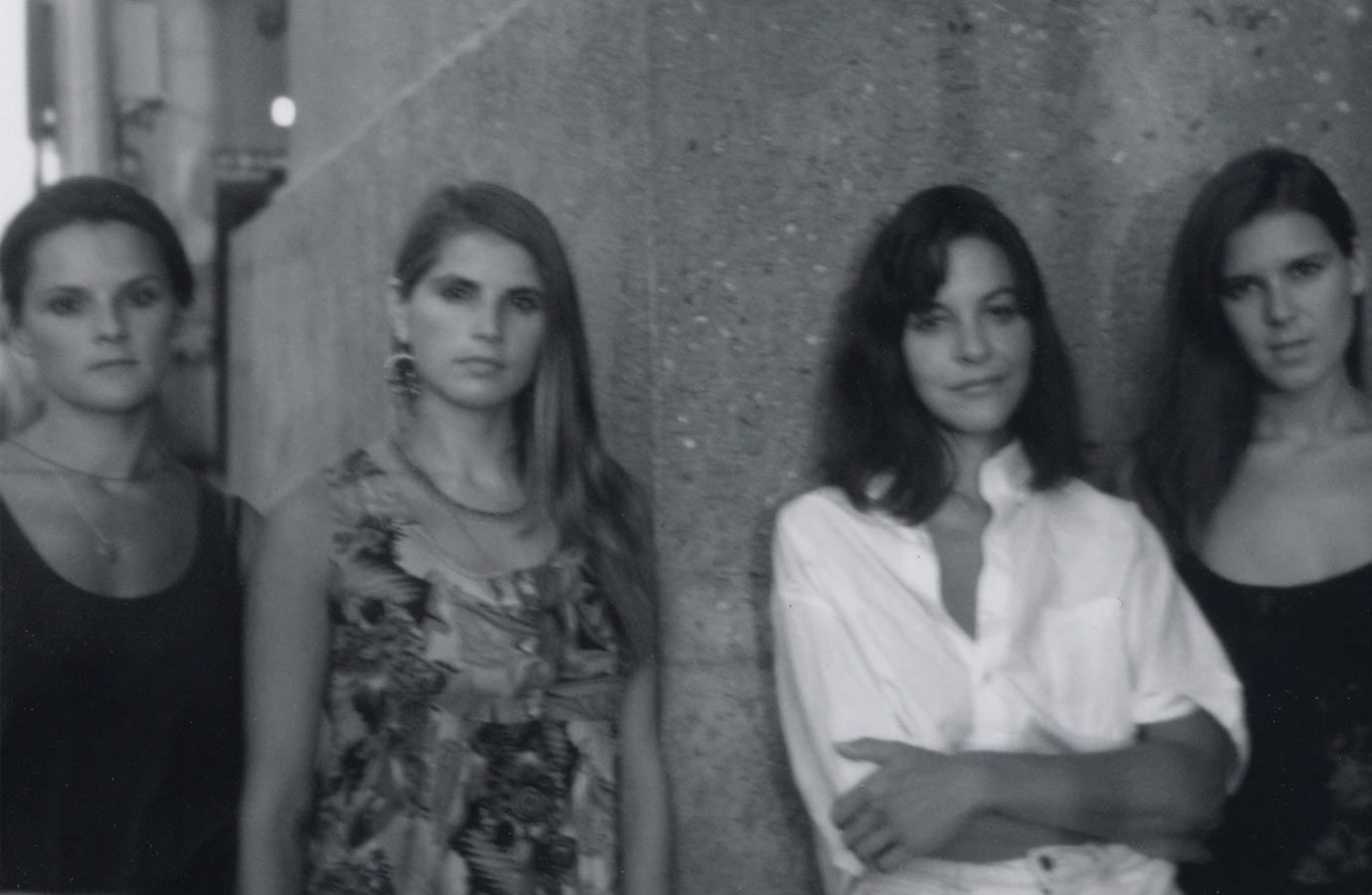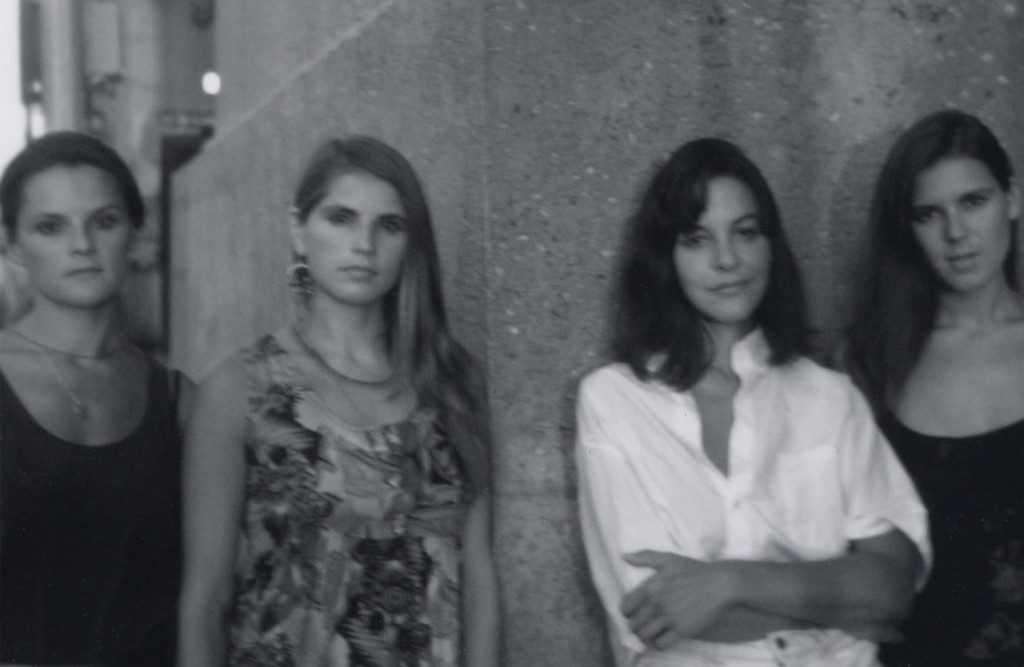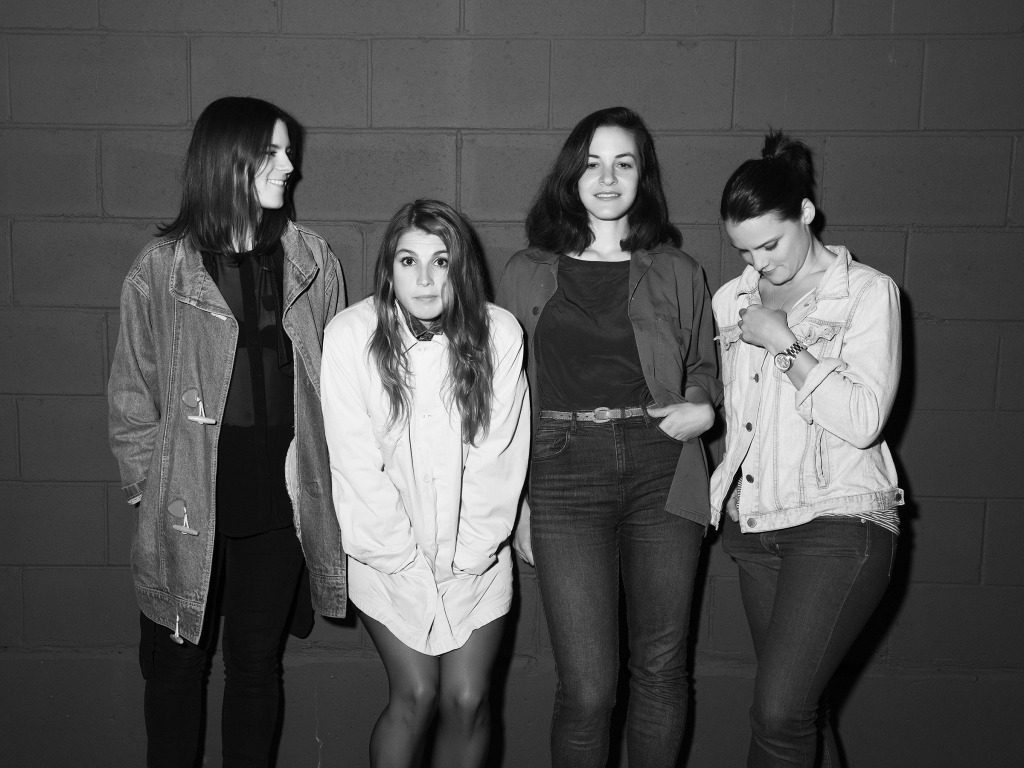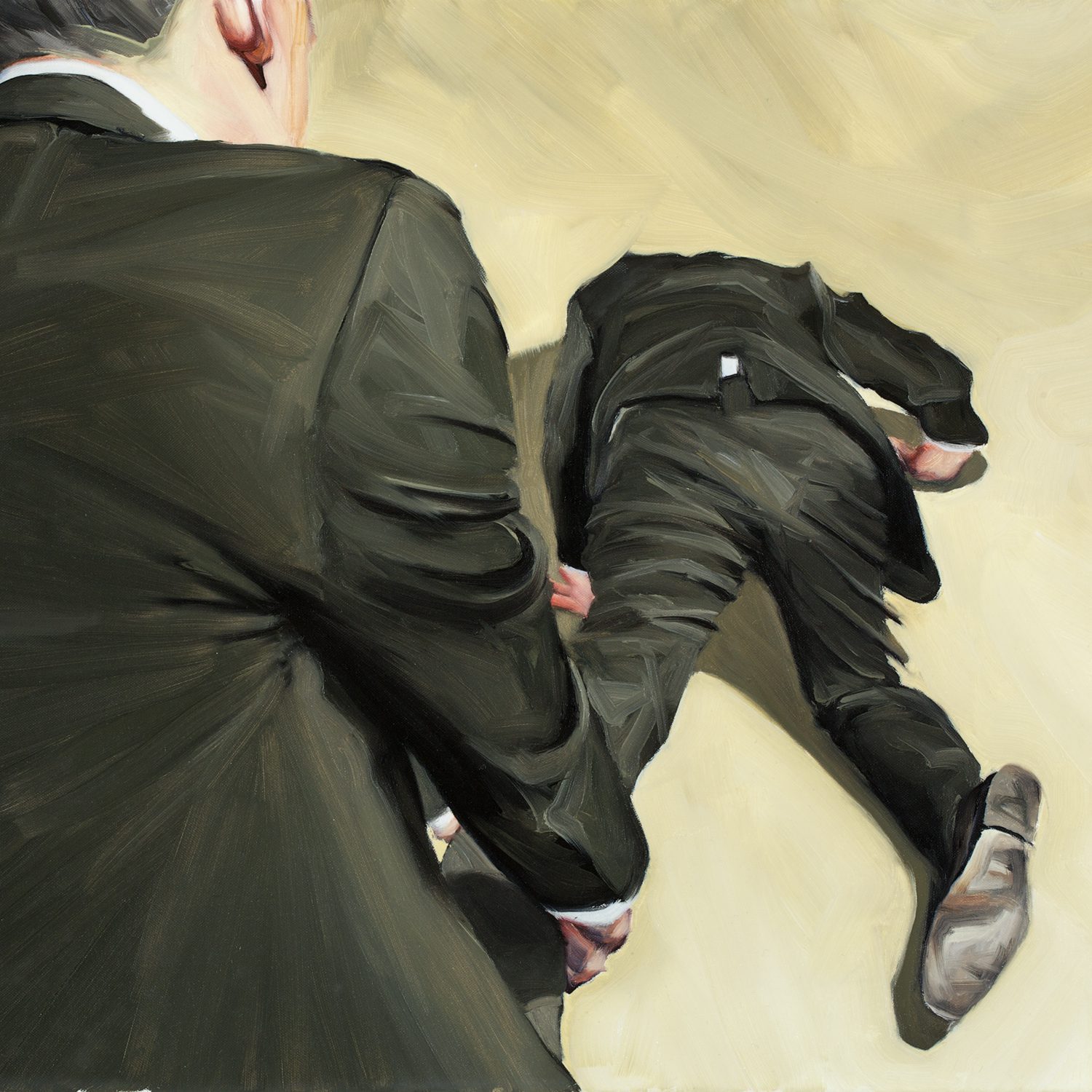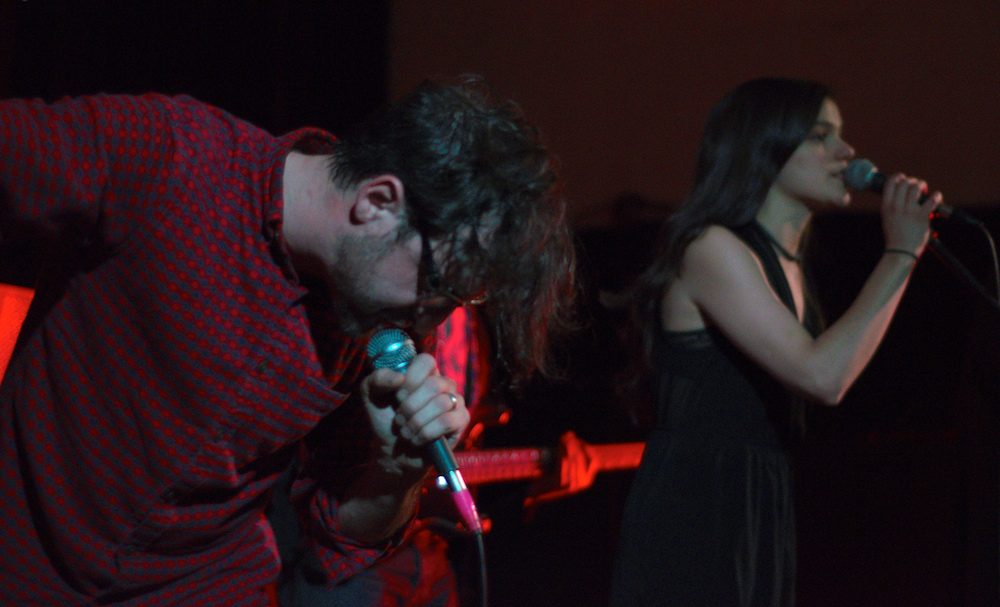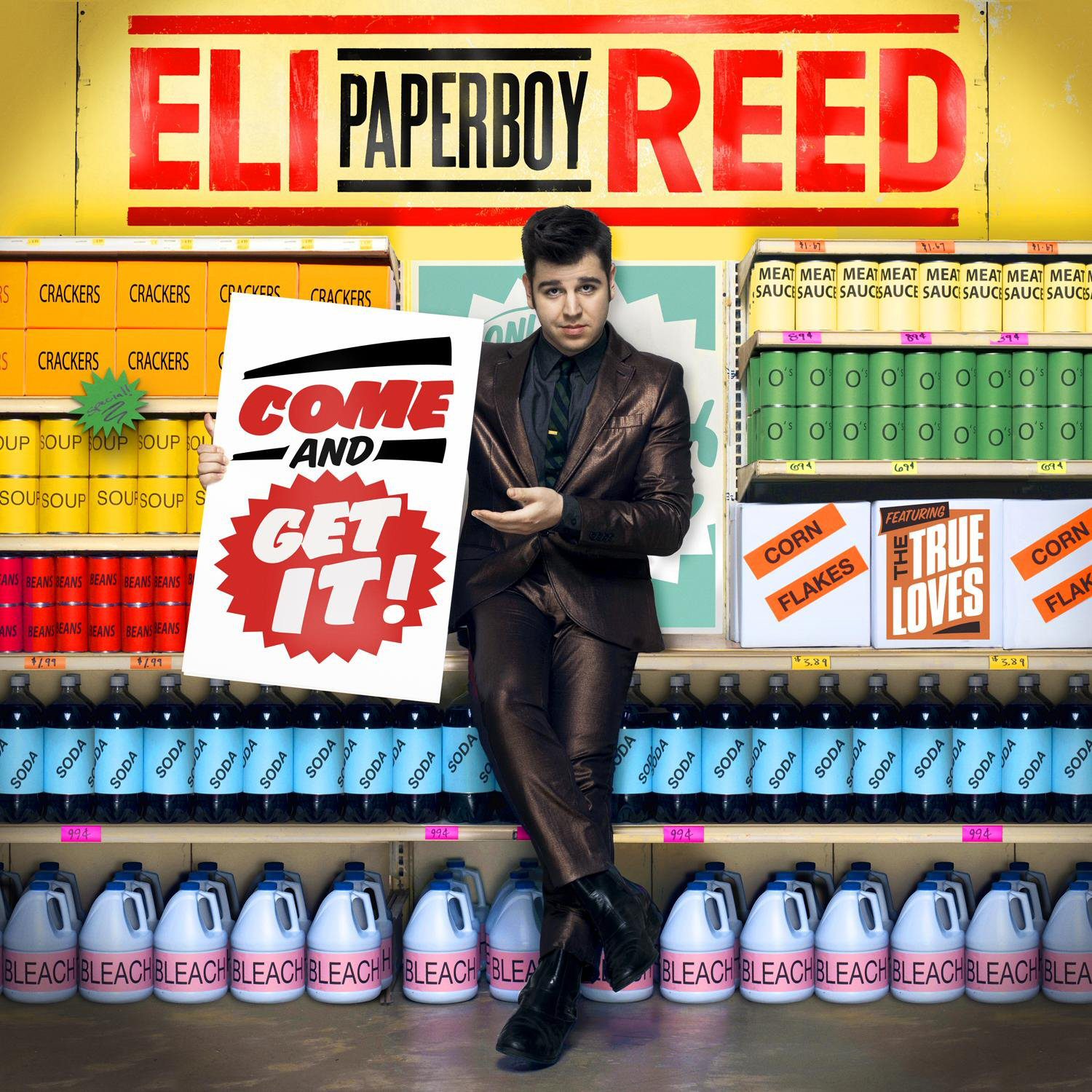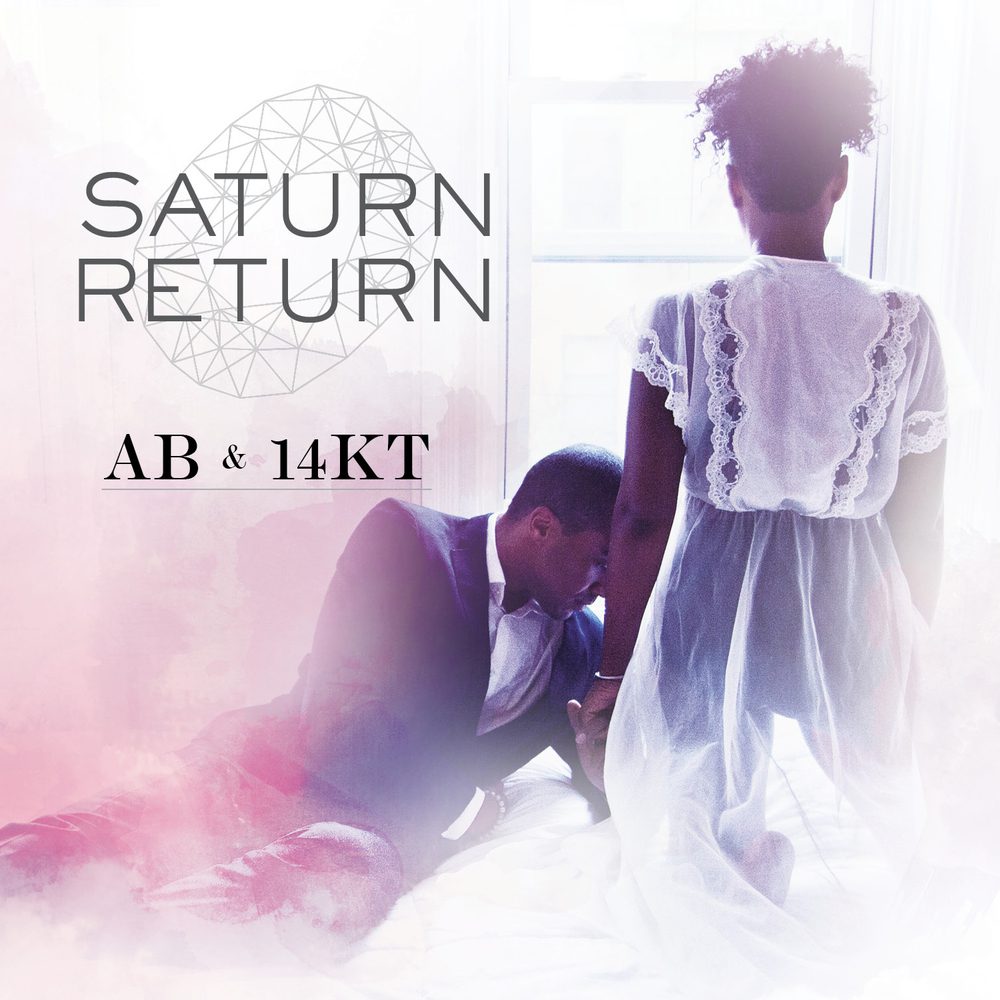

ALBUM REVIEW: Saturn Return, by Rebecca Kunin
Saturn Return– A Saturn return occurs when Saturn arrives at the exact position where it was located at one’s birth. It takes Saturn approximately 29.5 years to orbit the sun. Astrologers believe that a new life phase is signaled by every return. A Saturn return marks a life transition.
Progressive soul singer Aaron “Ab” Abernathy and producer 14KT were, once upon a time, both going through transitional periods in their lives. They leaned on each other for support, and after five years of therapeutic collaboration Ab &14KT released Saturn Return: an 11-part saga detailing Ab’s relationship with a girl named Lalah. While the story centers around a romance, Saturn Return poses general questions about life, love, loss and grief.
Saturn Return is a collage of genres, textures and emotions. From electronic experimentation to jazz, funk, soul, hip hop, even gospel, this album encompasses a wide spectrum of musical influences. While the styles of each song vary, they flow perfectly into one another, musically and thematically. When it comes to the compositions, it does not seem like Ab and 14KT have left any stone unturned. Saturn Return consists of seamless transitions (especially between Track 6 and 7 and Tracks 8 and 9), while Instruments such as the harp, violin, standup bass and piano color every track of the album. Ab’s voice, however, is the best instrument on the album. From falsettos to intricate runs, Ab continuously demonstrates his refined vocal techniques. Subsequently, 14KT takes Ab’s vocals and creates choirs, harmonies and a number of sound effects throughout each track of Saturn Return.
I recommend first listening to the album all the way through, from beginning to end with the lyrics in front of you. Focus on the music and nothing else, as it’s not the type that reaches out and grabs you. You may have to work for it, but trust me, it is well worth the investment.
The album’s 11 tracks tell the story of an entire relationship, from before it begins, to after it is over. As you can imagine, this album spans a plethora of emotions and a wide range of musical styles. “Today Love” is the first chapter in the story. The spacey, experimental soul song first introduces us to the narrator, Ab, and then the object of his romantic interest, Lalah. In the song, he pines after a mystery girl who doesn’t yet know his identity. “Don’t you act like you don’t know/I’ve been around.” The harmonization and falsettos introduce us to the Ab’s vocal span, while the echo effect, and the interpolation of the bass, violins, guitar and organ introduce us to 14KT’s production.
“Lover’s Galaxy”, the protagonist’s courtship phase, is a funky, upbeat track that mixes various rhythms and melodies to create a blend of hip hop and jazz. In “Can I Be Your Lover”, the two begin to date. This smooth, romantic track ends with Lalah’s response to Ab’s voicemail in “Lover’s Galaxy”, “Hey Ab this is Lalah. I just saw your message and it kinda made me smile.” “Heavenly” is another smoother, soul song, colored with harmonic vocals, snappy rhythms and soothing falsettos. With lyrics such as, “What more can I do baby/Tell me what more can I say/Fairytales and magic spells cannot compare to the pleasure that you bring,” “Heavenly” takes the prize for most romantic track on the album.
The tone of the album completely changes after “Sweat Pants & My Cardigan,” featuring Shelley Barnes. The somber opening piano chords set the tone for what is easily the opus’ saddest song, organized as a conversation between Barnes and Ab, who take turns narrating the verses. The two are teetering on the verge demise, with lyrics like “Getting bored, and you snore/Just ignore what I’m feeling inside.” “Sweat Pants & My Cardigan” is almost gospel, consisting of call and return styles and rich harmonization. The track ends with the woman leaving a voicemail for Ab pronouncing the relationship’s terminal end: “I’m just not sure if this whole thing is going to work.”
In “Forget Who I Am” the music, underpinned by funk/hip hop beats, along with upright bass and Jazz piano, dissipates halfway through to reveal a fight between the couple. The drama continues to escalates in “God (Food & Water),” with loud electric rock guitar and Ab’s melodic screams, standing in stark juxtaposition to the gospel choir.
Finally, the album’s title track brings home the overarching motif, and marks the beginning of a new chapter for both the artists. “Lost myself in my pattern/Unaware of things that mattered/I stumbled, fell and staggered ‘till I found myself in Saturn.” While “Message to my Unknown Love” hints that the narrator is beginning to move on,”Tomorrow Love” ends on a hopeful note, with Ab and 14KT looking toward the future.
The pair gave us a small glimpse into their lives with Saturn Return. They let us in on a more personal level, however, when Audiofemme had respective chats with them both. Continue reading to see what happened when our writers, Rebecca and Madison, pried their brains open. Before you do though, take a break and listen to “Forgotton”, off Saturn Return here via Soundcloud.
Here’s what Ab had to say about life, love and his work as an artist:
AF: My favorite aspect of this album is the range of emotions that you display in each song. Each song seamlessly blends into the next to tell a story. When you set out to write Saturn Return did you know that it was going to be an entire album? Did you intend for it to follow the trajectory that it did?
AB: When I wrote this album I had no specific direction for it. The writing for each song was based on what I was going through at that specific point in time. The lyrics to each record on Saturn Return is therapeutic in a sense.
AF: What was the writing process for the album as a whole? How did you decide to transition from one song to the next?
AB: There wasn’t a set writing process for the album at all. Me and KT had finished nine records for this album in 2010 and I disappeared in 2011. In the later part of 2011, I spoke to him about the Saturn Return process after realizing that’s what both of us were experiencing after my friend Evelyn Bandoh, who was a co-worker of mines at the time revealed what Saturn Return was to me. Once I realized what it was and how it was perfect for the album, all that was left to do was put the album in order and tie the story together. That’s when KT came to my studio in DC, MLK day weekend of 2012 and we worked on the last two records which were “Forgotten” and “Sweatpants & My Cardigan.” Everything came together perfectly.
AF: I first listened to this album in order from beginning to end. How would you recommend listening to the album?
AB: In order from beginning to end.
AF: Will you be performing this album in it’s entirety?
AB: I’m not sure yet. Me and KT have to get together and find the most effective way to roll this album out in it’s live version.
AF: You began working on this album 5 years ago. Are the lyrics as personal to you now as they were 5 years ago? When did you finish writing the lyrics?
AB: They’re very personal because it signifies where I was at in different periods of my Saturn Return. I have lived every single one of these records but not in the order of this album. I finished all the lyrics January of 2013 when I decided to add lyrics to the title track.
AF: I understand that Saturn Return is an astrological term that describes when Saturn returns to the position that it occupied at one’s birth. A Saturn Return occurs approximately every 30 years. Each Saturn Return marks a new beginning and a transition into a new life stage. Why did you decide to name the album “Saturn Return”? Is it meant to signify a transition in life and/or music? If so, what is the transition?
AB: I took it to KT and we decided to name the album Saturn Return because both of us were transitioning into adulthood and the pressures that come with it in the midst of creating this album. Also, we were aware that our friends were going through the same struggles but couldn’t put a name on what they were feeling. I believe the title brings light to something my peers were unaware of. I kept telling KT I want people to think of this album like a book. One would recommend a book to someone going through something…I hope someone will recommend this album just like a book to someone going through Saturn Return…or even a break-up cause that’s what Saturn Return is…a difficult break up with your past to transition to the next level.
AF: In my opinion the track “Saturn Return” signals a change in the tone of the album. Does this track represent the beginning of the transition that you went through writing this album?
AB: The title track is definitely signals a change in the tone of the album. This was the very last track that I wrote to on the album on the second to last day of mixing the album at The IS Studio (KT’s studio). It doesn’t represent the beginning of the transition that I went through writing the album but it does represent the understanding of what I went through during the five years of living while creating the album and how trials and tribulations can help you find yourself and prepare you for what is coming in the future.
AF: You utilize many genres on Saturn Return, from electronic and funk to soul, jazz and R&B. Why was the style so varied throughout the album? How did you decide to pair the lyrics of each song with the music that it is accompanied with?
AB: I like singing in different styles. I think it’s important that I don’t limit myself when it comes to expressing my artistic character. The music that KT and I created told a story before I added lyrics to it. It was important that I sat with the music and let the message come to me. It’s what I do with most of the records I work on.
AF: Saturn Return is markedly different from the work that you have done previously. Is this the beginning of a new direction in your music?
AB: I don’t think my music is headed in a new direction. I’m a soul artist and plan on continuing to stay in the arena.
AF: “Sweatpants and Cardigan” has a very intricate narrative. Explain how Shelly Barnes and your parts interplay.
AB: This record is open ended…here you have Shelley (representing Lalah) and me internally speaking on how we feel about each other. Like most unhealthy relationships we know how we feel but we haven’t told the person we’re in the relationship with. Both characters are hurt for different reasons and Lalah makes the first move to exit.
AF: Which song on the album best represents the collaboration between both your and 14KT’s musical styles and why?
AB: That’s tough. I would say the entire album. We crafted a sound together. The whole album has a vibe from top to bottom that is our sound. Even on the three records he produced on his own and the two I produced on my own…we both added elements that gave it the Ab & 14KT signature mix of sound that was appropriate for the record we were working on.
AF: How did your collaboration with 14KT affect the music and production of this album? What did the collaboration process entail?
AB: I believe our collaboration was deeper than the music and the production. The process entailed more of two friends talking about real life and encouraging each other while working on music during the process. So many things happened within our personal lives within those five years. We would have serious conversations and then next thing you know we were in the studio and KT was creating drum patterns and I was on the keys creating melodies and going through different patches. Then he’d get on the keys and do something, Then I get back on the keys and do more and we kept building the music while we were also building up each others lives through support.
AF: You have said that you and 14KT worked on this album together because you were both going through similar experiences. Was the album a collective blend of the both experiences?
AB: Yes. Certain songs speak to our personal situations in different ways.
AF: Can we expect more AB and 14KT collaborations in the future?
AB: Only time will tell…
***
Audiofemme’s
Madison Bloom then got the opportunity to chat with 14KT over the phone, from his studio in Ypsilanti Michigan. I think the two may possibly have become best friends during the process. Here’s what went down:
Ypsilanti Native Kendall Tucker, aka 14KT, has taken a hiatus from Athletic Mic League and released his first full-length collaboration with his long-time contemporary, vocalist/songwriter AB. Saturn Return, a 48 minute soul opus, is a textural, funk-ified R&B testament to the existential dread turning 30 and reassessing your entire life. I never knew a quarter-life crisis could sound so damn sexy, but lo and behold, it does in this case.
I had the pleasure of chatting with Kendall over the phone about the record, Detroit, and the standards we hold ourselves to.
14KT: Hello?
AF: Hi Kendall sorry, about that [fusion_builder_container hundred_percent=”yes” overflow=”visible”][fusion_builder_row][fusion_builder_column type=”1_1″ background_position=”left top” background_color=”” border_size=”” border_color=”” border_style=”solid” spacing=”yes” background_image=”” background_repeat=”no-repeat” padding=”” margin_top=”0px” margin_bottom=”0px” class=”” id=”” animation_type=”” animation_speed=”0.3″ animation_direction=”left” hide_on_mobile=”no” center_content=”no” min_height=”none”][messes with recording software].
14KT: No it’s alright
AF: I’m atrocious with technology. How are you doing?
14Kt: I’m doing pretty good, pretty good. How ‘bout yourself?
AF: I’m doing really well. I just had a chance to listen to your album with Ab and
it sounds amazing.
14Kt: Aw thank you, thank you very much.
AF: So, my first question is a little corny, but I kinda had to wonder: why not 18KT? Or 24 for that matter?
14KT: (Laughs) I mean 14’s my favorite number.
AF: Why’s that?
14KT: Well 14 was like my basketball number, so it kinda stuck with me when I was younger.
AF: Ok, right on. I was just wondering cuz, you know, it was 14, and I thought, eh, it could be 24….
14KT: Yeah, people have asked me that before, y’know, like “you could go up to 24!”
AF: I thought maybe it was because the more Karats you have, the softer the gold is, so 14 is a lot harder than 24.
14KT: True.
AF: So, your record is pretty textural, it sounds like there’s been a lot of work put into it, not just with the songwriting but the production especially.
14KT: Yeah, well Saturn Return wasn’t really Saturn Return when we started making it, but we started recording songs about five years ago. It’s been years of like, working on it little by little.
AF: I know production has always been important, but I feel like it’s becoming more and more prominent, and with things like Ableton and other types of software, it’s becoming so much more approachable for really anyone with a computer to make music.
14KT: Yeah, definitely. Technology has made music easier to make, so pretty much everybody’s doing it, like there used to be a time when singers stayed singers, and rappers stayed rappers, and producers stayed producers but now everybody to produce and make your own stuff. That’s the world now.
AF: That’s a great thing about the record: we are in this age of computers, but that doesn’t infect the sound of that album. There’s still a lot of instrumentation there and it seems that it was composed by people who knew music before they just started messing around on computers.
14KT: Yeah I mean we’re fans of records, and just music in general, what we used to make this album was more organic. Computers were used but a lot of the stuff that was played, we just played. We’d just jump on the keyboard and play some melodies.
AF: So, I was doing some research on ya and I had never heard of the town that you’re from…is it Ypsilanti? How do you pronounce that?
14KT: (Laughs) It’s pronounced as “Iiipsilanti, Michigan.” The “Y” always throws everybody off.
AF: Iiipsilanti, ok. I was looking on The Wikipedia because I was trying to figure out what this place was, and one thing that was written that I wanted to get your opinion on was that: “Ypsilanti is the Brooklyn to Ann Arbor’s Manhattan.”
Is that bullshit, or is that true?
14KT: (Laughs) I didn’t know Ann Arbor had a Manhattan.
AF: Ok, I thought maybe you’d call some bullshit on that.
14KT: Yeah, I can’t say that. Ypsi and Ann Arbor are right next to each other but their kinda the same, but not the same. They’re both college towns, but Ann Arbor’s a little more expensive, and Ypsi is like “Little Detroit.” It’s like a smaller version of Detroit, it kinda has a Detroit feel to it a little bit, but it’s like a mixture of Ann Arbor and Detroit a little bit.
AF: Do you identify yourself with the scene in Detroit?
14KT: I have to because I’ve been going up there a lot, but I’ll always rep Ypsilanti, where I grew up… I never lived in Detroit but, half of my family lives out there, so yeah I’m part of Detroit hip-hop, I’m part of Michigan hip-hop.
AF: I read a description of the album, and it was kind of describing the concept behind the album…that you and Ab had gone through some difficult periods in your life together and that inspired the record. Comments?
14KT: Yeah, within the last five years for me and Ab, a lot of personal things were happening in our lives, and we were friends so we would just talk about things, and these things had nothing to do with music, so we would just talk about things we were going through, which was our Saturn Return.
I was getting challenged on each category of love, of my career, of my family, and just personal goals and moving forward, and I was telling Ab this, we were sitting in a car, and I told him some of the things, you know, how it affected me with my relationships with friends, and he was like: “man you’re going through your Saturn Return,” and I was like, “what’s that?”
He started to explain it to me, and all the while we’re sitting in the car while he’s talking and explaining this, we’re listening to the music we’d created, and it’s playing in the background, and when he said that phrase, and he was going through the same stuff that I was going through at the same time, we just felt like it was important for us to put that [record] out.
AF: So, the concept of Saturn Return, is it almost a period of purging and shittiness before you really hit your stride? Almost like a phoenix rising from the ashes type of situation?
14KT: Yeah, I mean, some people can call it somewhat of a midlife crisis, but most of the time you feel like that’s when you’re grown. You know, when you turn 21 you’re grown, but really I think Saturn Return is like the year you turn 21. That’s when you’re grown, that’s when you start realizing things, that everything you do can affect not only you, but anybody. You are going through a phase where you get real down, you get real negative about things… If things aren’t working out, and a lot of things start happening–people might pass away, you might fall out with friends. Around that age people get married, people have different focuses in their life and where they want to go and it might not have anything to do with you, so you might fall out with family, you might fall out with friends, you might fall out with dating…you might not even understand dating anymore because maybe it was fun when you were a little younger but you got older and maybe it got a little more serious, or harder for you to find someone. All these things become more complex.
AF: Right, and in the [record] description I think it mentioned becoming aware of your own mortality.
14KT: Yup. The key to it, and I still feel like I’m still in my Saturn Return, but I feel like I’m coming out to a certain degree, and the key to the coming out is understanding that everybody goes through it, and recognizing it while you’re in it, because if you don’t, you freak out. But if you understand that that’s kind of what happens and what you go through, then you can understand that this is something you gotta go through and it’s gonna make you better and you’re going to learn a lot.
AF: It’s funny because what you’re talking about is something very similar to what Freud spoke about, and it was something he prescribed to the end of people’s lives, you know, that state of: “have I led a meaningful life?” and you seem to have come to that place several years before which I think is very amazing and a great thing to be self-aware of.
14KT: Yeah, I think the earlier you’re aware of it, the more you’ll conduct your life a little bit differently. But like I said, most of the time when you’re young you’re not doing that, you’re still learning things and trying things and you get to this point where you’re like: “what have I accomplished?” then you start freaking out because you feel like you don’t have any time left for whatever reason, or you got too old, or whatever excuses you want to come up with which are not true, but it’s just what people go through, it’s just normal, very normal.
AF: So, what age did you go through your Saturn Return?
14KT: They say it starts when you turn 29 but I think mine was when I turned 30, because 30 is when you start to evaluate, like: “where am I at? What am I doing? How do I feel?” But when you actually get there you’re like: “alright, where am I at?” And you start really realizing all of these things, and I think from 30 a lot of things started happening which forced me to start thinking on a different level, and I wasn’t ready for it because it was all happening all at one time. So I’d say 30 is the age that it started.
AF: Well that’s a wonderful story, and it certainly created a series of eventsthat allowed for a great record to come out of it, so that’s a wonderful accomplishment on your part. I don’t want to keep you too long but I do have one more question for you, it’s kind of a silly question since we just got off a very serious topic: I was feeling very thematic with my questions today and I was thinking about Detroit and its history as an automotive haven, and I wanted to ask: if your music was playing out of a car stereo, what kind of car it would be…one that embodies physically, the way your music sounds. Guys love car talk, right?
14KT: Most of the record is kind of melodic, so it’d have to be a car that is kind of wide inside, that’s kind of intimate, or sexy in the inside…I would probably have to go with…a Lincoln.
AF: Nice! Well, it was lovely talking to you Kendall, I’ll look forward to the tour dates, I hope you guys hit up New York.
14KT: Yeah, New York is actually on our list, we’re working on it. Thank you very much.
[/fusion_builder_column][/fusion_builder_row][/fusion_builder_container]
